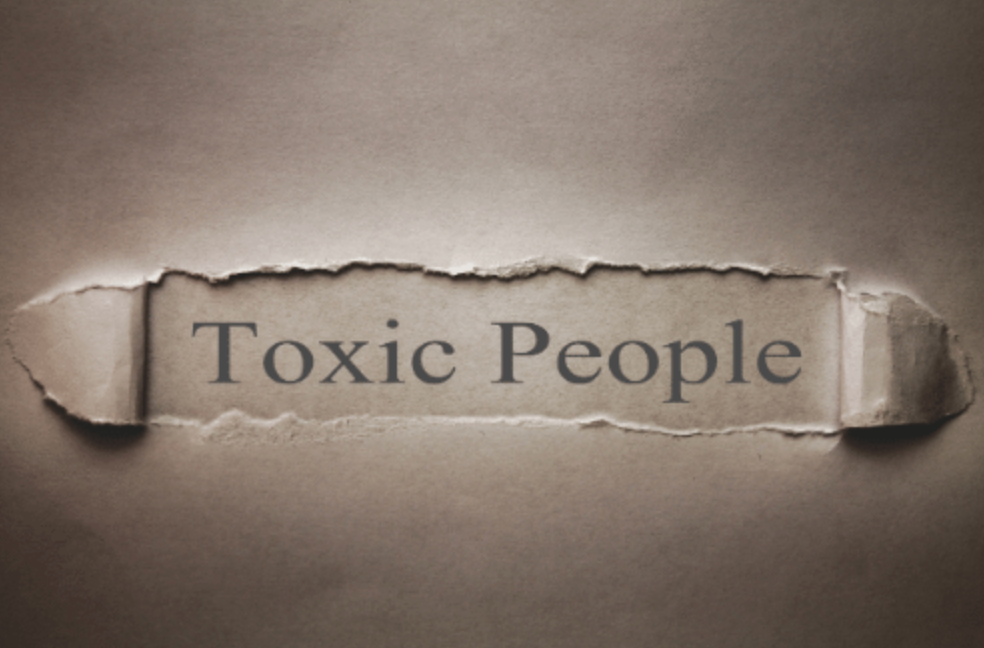
7 ways to deal with toxic people — Brené Brown’s strategies
Have you had experience with toxic people in your life? I know I have!
Toxic people are unfortunately a part of life. They may show up as a negative co-worker, a judgmental family member, or even a so-called friend who leaves you feeling small and drained after every interaction.
Renowned researcher and author Brené Brown has spent decades studying vulnerability, courage, shame, and empathy. Her work highlights that the way we respond to difficult people not only impacts our wellbeing but also defines the quality of our relationships and our self-respect.
And today we are looking at 7 powerful, compassionate, and practical ways to deal with toxic people, inspired by Brené Brown’s research and insights.

1. Recognise manipulation and red flags early
The first step in dealing with toxic people is awareness. Toxic behaviours often include:
-
Gaslighting (making you doubt your own reality)
-
Passive-aggressive comments
-
Constant criticism or judgment
-
Playing the victim to gain sympathy
-
Guilt-tripping or emotional blackmail
Brené teaches us to trust our intuition. If you consistently feel “off” around someone, it’s usually a sign that their behaviour is unhealthy.
Recognising these patterns quickly means you can step back before being pulled into the cycle.
2. Set clear and non-negotiable boundaries
Boundaries are not walls—they’re healthy fences that protect your energy, time, and emotional health. Brené says, “Daring to set boundaries is about having the courage to love ourselves, even when we risk disappointing others.”
Practical examples include:
-
Telling a colleague, “I’m not available to discuss this outside work hours.”
-
Letting a family member know, “I’m not comfortable being spoken to like that.”
-
Choosing to leave a social event early if the atmosphere becomes toxic.
Boundaries communicate that you value yourself. Toxic people may push back at first, but consistency is key.
3. Stop over-explaining yourself
Many of us fall into the trap of over-explaining or justifying our decisions to avoid conflict. But Brené’s research shows that this comes from a place of shame or fear of rejection.
When you hold firm in your decisions without endless explanations, you send a message that you trust yourself. A simple “No, that doesn’t work for me” is enough. You don’t owe toxic people your time, energy, or detailed reasoning.

4. Respond instead of react
Toxic people often thrive on drama. They may say something cruel, hoping you’ll lash out so they can twist the narrative. Brené encourages us to take a pause before responding.
Instead of reacting emotionally in the heat of the moment, breathe, ground yourself, and choose a calm response. For example:
-
Instead of snapping back, say: “I hear what you’re saying, but I see it differently.”
-
If someone tries to provoke you, try: “I’m not going to continue this conversation right now.”
By responding instead of reacting, you keep control of the situation—and protect your peace.
5. Embrace vulnerability as strength
It may feel counterintuitive, but Brené Brown teaches that vulnerability is not weakness—it’s courage in action. This doesn’t mean exposing yourself to further harm. Instead, it means being authentic about how you feel.
For example:
-
Saying, “I feel hurt when you dismiss my opinion,” rather than bottling it up.
-
Admitting, “This conversation is making me uncomfortable,” and stepping away.
When you express your feelings with honesty, you create space for either deeper connection (if the person is capable of change) or clarity that the relationship is not healthy for you.

6. Practice self-compassion and protect your energy
Toxic people can trigger feelings of shame or self-doubt. They may leave you questioning, “Am I the problem?” Brené’s work reminds us that self-compassion is the antidote to shame.
Be gentle with yourself. Instead of criticising your reactions, remind yourself:
-
“I am allowed to protect my boundaries.”
-
“I am not responsible for another person’s toxic behaviour.”
-
“I deserve respect and kindness.”
Self-care also plays a role—whether that’s exercise, meditation, journaling, or simply spending time with supportive people who uplift you.
7. Know when to walk away
Sometimes the bravest and healthiest decision is to let go entirely. Not every relationship can be fixed, and not every person deserves a seat at your table.
Walking away doesn’t mean you’re weak—it means you’re strong enough to choose your wellbeing. Whether it’s reducing contact, unfollowing someone on social media, or ending a relationship completely, you’re reclaiming your peace.
As Brené says, “When we deny our stories, they define us. When we own our stories, we get to write the ending.” Choosing to walk away is owning your story and protecting your future.
Final thoughts
Dealing with toxic people is never easy, but Brené Brown’s insights show us there is a path that balances courage with compassion. By recognising manipulation, setting strong boundaries, and prioritising self-respect, you create space for healthier connections and greater peace in your life.
Remember: you are not responsible for fixing or carrying toxic people. You are responsible for protecting your own energy, wellbeing, and joy.

